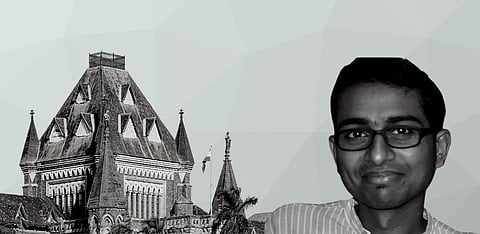

The operation of the Order granting bail to Mahesh Raut is, however, directed to remain in suspension for a week to enable the NIA to appeal.
—
ON Thursday, the Bombay High Court granted regular bail to forest rights activist Mahesh Raut.
A division Bench of the high court comprising Justices A.S. Gadkari and Sharmila U. Deshmukh, however, has stayed the Order for one week.
Mahesh Raut is an accused in the Bhima Koregaon–Elgar Parishad Maoist links and criminal conspiracy case under the Unlawful Activities (Prevention) Act, 1967.
He is currently lodged in the Taloja Central Jail, awaiting trial.
The bail application, filed in 2022, challenges the rejection of bail pleas by a sessions court in Pune in 2019 and a National Investigation Agency (NIA) court in Mumbai in 2021.
On September 12, the court concluded hearing arguments from both sides and reserved the matter for judgment.
Senior advocate Mihir Desai, on behalf of Raut, claimed a lack of evidence against Raut. Desai sought parity with judgments granting bail to other co-accused persons— Dr Anand Teltumbde, Vernon Gonsalves and Arun Ferreira.
Additional Solicitor General of India Devang Girish Vyas, representing the NIA, had argued that as an active member of the banned Communist Party of India (Maoist), Mahesh Raut recruited members and received funds to further its activities, and he was a participant in the Elgar Parishad event that had led to violence.
Today, following the grant of bail, the counsel representing the NIA sought a stay on the Order for a period of two weeks to appeal in the Supreme Court.
The Bench referred to an Order granting bail to Dalit scholar, academic and activist, Dr Anand Teltumbde— a co-accused in the Bhima Koregaon case, where a similar stay was sought by NIA.
Consequently, the Bench granted a stay on its Order granting bail to Raul for one week.
Mahesh Raut, a land and forest rights activist, worked with gram sabhas in the mining areas of Gadchiroli, Maharashtra.
On June 6, 2018, Raut, along with five other accused persons, was arrested for allegedly spreading Maoist ideology, providing funds to banned organisations and conducting recruitments for the Maoists.
In November 2019, a sessions court in Pune rejected bail applications filed by the six accused persons. The court noted that prima facie evidence suggested that the acts of the applicants were aimed at undermining democracy in India.
In November 2021, an NIA court, while taking note of the submission made by NIA that Raut's name was found in a letter retrieved from co-accused Wilson's computer, rejected his bail application.
The submission was opposed by Raut stating that the existence of the letter is disputed on account of forensic reports finding malware infiltration of Wilson's electronic mail devices.
In April 2022, Raut approached an NIA court to seek discharge from the charges levied against him in the 2018 case related to allegedly spreading Maoist ideology.
He claimed that the allegations of handling money for the CPI (Maoist) and for assisting students to go to Gadchiroli are based on the two letters obtained from co-accused Wilson's device, which according to him have been compromised and the evidence tampered with.
Earlier, on May 4, 2022, the Bombay High Court dismissed a petition that sought review of its earlier December 1, 2021 Order under which an appeal for default bail presented by eight accused, including Raut, was dismissed.
Trial is yet to begin in the Bhima Koregaon case. The prosecution has filed a chargesheet exceeding 5,000 pages and intends to cross-examine at least 200 witnesses.
Several of the accused persons have now spent almost five years in judicial custody without trial.
Besides Raut, five of the accused persons, Sudha Bharadwaj, Varavara Rao, Dr Anand Teltumbde, Vernon Gonsalves and Arun Ferreira have managed to secure bail so far.
Another co-accused, Father Stan Swamy, passed away due to COVID in custody in June 2021 after incarceration of over seven months. The others remain behind bars.
An investigation by Arsenal Consulting, a leading, independent expert firm on digital forensics, has revealed that sophisticated malware was used to plant the digital evidence that forms the basis for the prosecution's case on the devices of two of the accused persons in the case, Surendra Gadling and Wilson.